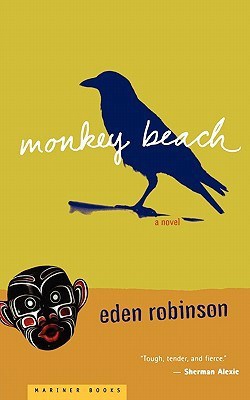“All that we are is story. From the moment we are born to the time we continue on our spirit journey, we are involved in the creation of the story of our time here. It is what we arrive with. It is all we leave behind... What comes to matter then is the creation of the best possible story we can while we’re here; you, me, us, together. When we can do that and we take the time to share those stories with each other, we get bigger inside, we see each other, we recognize our kinship — we change the world, one story at a time.”
– the late Ojibway author Richard Wagamese
The Tri-Cities’ third biannual All Nations Festival (June 17 to 21) is an opportunity time to highlight our Indigenous authors. Historical, social and cultural documentation in fiction leaves a more powerful and lasting effect on us than information gleaned in a book of facts. Personal stories, told in fiction, allow the author to weave in emotions that strike at the core of the heart.
Richard Wagamese was one of Canada’s foremost writers, with numerous awards to his name. He was a newspaper columnist and reporter, radio and television broadcaster, documentary producer and author of several Canadian bestsellers: Medicine Walk, Dream Wheels, Indian Horse, Keeper ’n Me, Ragged Company, One Story, One Song and Speaking my Truth: Reflections on Reconciliation and Residential School. Medicine Walk, set in the rugged and beautiful back-country of the B.C. Interior, is a story about a father and son that is both heartbreaking and redemptive. The father, Eldon, is not a good father. He is an alcoholic and suffers from problems which are clearly a fallout from the residential school system. Eldon, his son, is brought up by a man to look after his farm. At 16, the son is reunited with the father, who has been decimated from years of drinking. A dutiful son, he takes his father on a traditional, spiritual and healing journey. This is the Medicine Walk, during which, through a series of flashbacks, you learn about the boy’s relationship with his father.
Lee Maracle is a Sto:lo First Nation grandmother of four and mother of four who was born in North Vancouver. A gifted and award-winning author and teacher who has written a number of poetry works and has been published in dozens of anthologies in Canada and the U.S. Daughters are Forever, Sojourner’s Truth and Other Stories, and First Wives Club: Coast Salish Style are also powerful reads.
Robert Arthur Alexie is a Teetl’it Gwich’in born and raised in Fort McPherson, N.W.T. Porcupines and China Dolls, his first novel, is set in the harsh but beautiful landscape of the far north. James Nathan and Jake Noland return from residential schools hiding a secret that will tear their lives apart. At the same time, Louise Williams returns from the school and finds she no longer fits in her community. James and Jake, their hair spiky short, resemble porcupines; Louise, face whitened by powder, bangs cut short , looks like a china doll. They are no longer innocents schooled in the ways of their people — they are caught in limbo, neither Indian nor white, stripped off their identity.
Eden Robinson is a First Nations writer who grew up in Haisla territory near Kitimat and published her first book in 1996, a collection of stories called Traplines. Monkey Beach is her first novel. On a peaceful shore of the Douglas Channel lies the remote Haisla community of Kitimat. Seventeen-year-old Jimmy Hill, ambitious and handsome, is the pride of the village and an Olympic hopeful. Despite being sought after by the local boy-chasers, Jimmy shows little interest in courtship — until he falls in love with Karaoke, tough as nails and the village beauty. But their young romance is cut short by the news of a horrifying accident at sea and Jimmy’s mysterious disappearance. Blood Sports and Son of a Trickster are also riveting and compelling reads by Robinson.
What I found most common among these books is that our Indigenous writers focus on the struggles of the young. Addressing them in fiction is one way of coming to terms with personal struggles, pain and suffering. These and more stories by First Nations authors can be found at your library.
A Good Read is a column by Tri-City librarians that is published on Wednesdays. Teresa Rehman works at Coquitlam Public Library.



